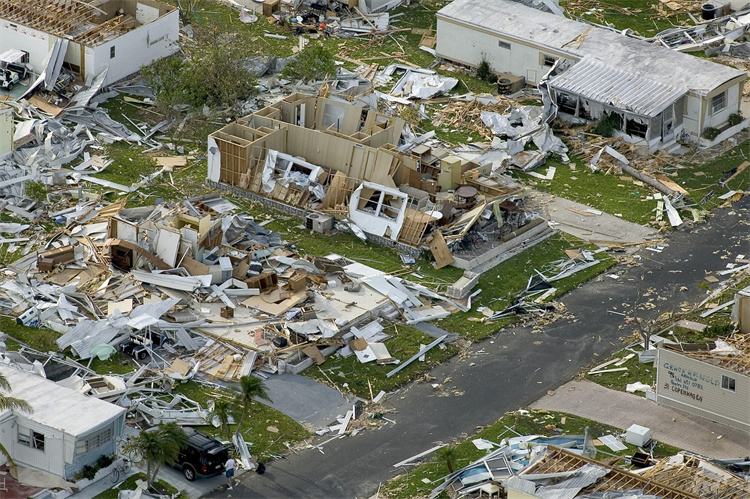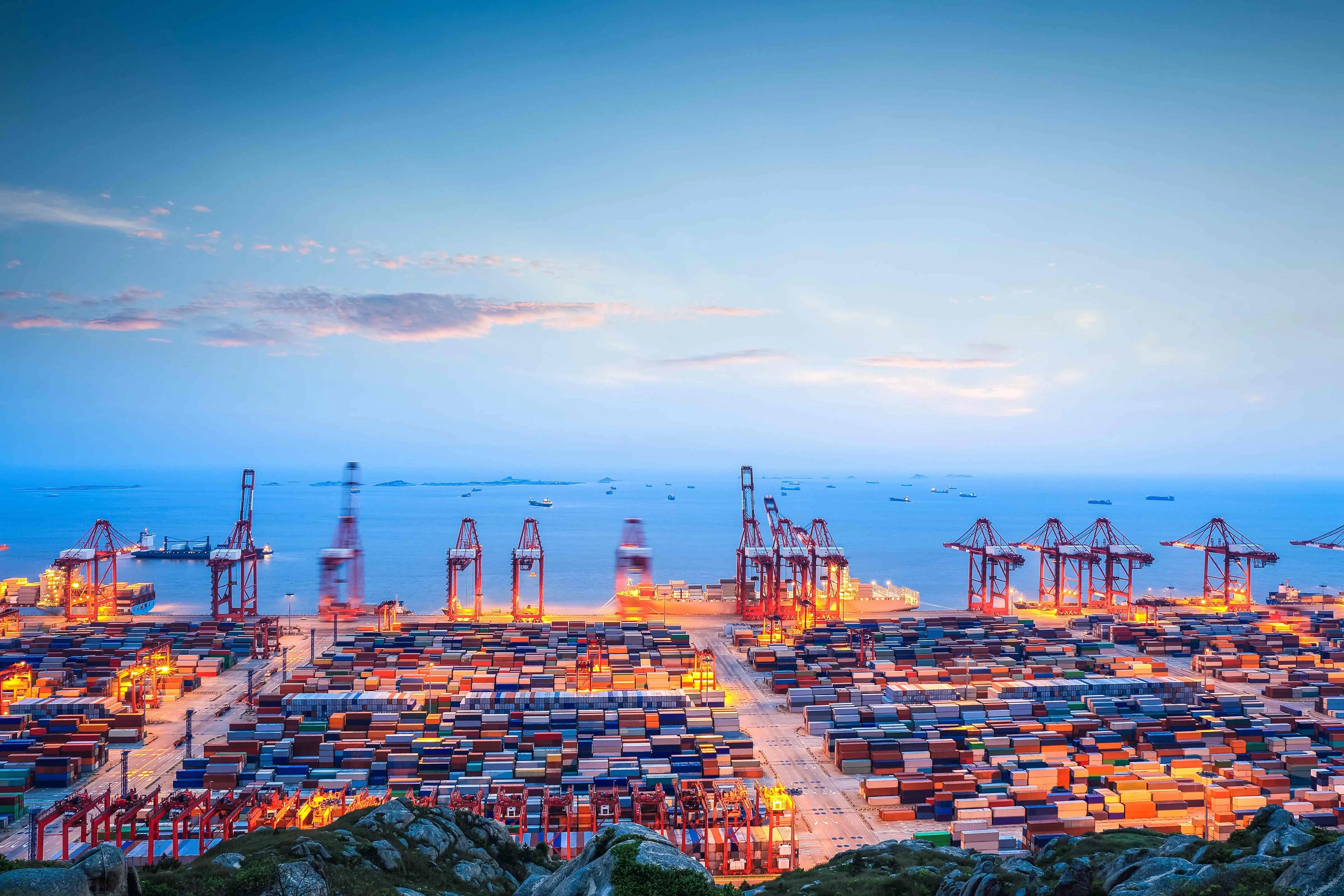Hurricane Supply Chain Impact: What Businesses Should Know

Just weeks apart, two powerful hurricanes battered the Southeastern U.S., causing widespread devastation. Hurricane Helene, a Category 4 storm, made landfall on September 26, 2024, in Florida's Big Bend region. On October 9, Hurricane Milton, a Category 3 storm, struck Florida's west coast near Siesta Key.Hurricanes pose a significant threat to supply chains, disrupting logistics and delaying the delivery of goods.
These natural disasters can cause widespread damage, impacting not only the immediate area but also creating a ripple effect across the country. Understanding the hurricane supply chain impact is crucial for businesses. It helps you anticipate challenges and develop strategies to mitigate disruptions. With the increasing frequency of hurricanes, as experts predict more named storms and major hurricanes, businesses must stay informed and prepared to safeguard their operations and maintain economic stability.
Overview of Hurricane Supply Chain Impact
Hurricanes significantly disrupt supply chains, affecting various aspects of transportation and logistics. Understanding these disruptions helps you prepare and respond effectively.
General Disruptions Caused by Hurricanes
Delays in Transportation
Hurricanes often lead to severe delays in transportation. Roads and railways become impassable due to flooding and debris, making it difficult for goods to reach their destinations. For instance, hurricanes in Florida have disrupted delivery networks, delaying shipments and threatening time-sensitive products. You must anticipate these delays and plan accordingly to minimize their impact on your operations.
Increased Costs
The financial impact of hurricanes on supply chains is substantial. Increased transportation costs arise from rerouting shipments and using alternative modes of transport. Additionally, inventory challenges and forced relocations contribute to higher expenses. Businesses must budget for these increased costs to maintain financial stability during hurricane events.
Specific Industries Affected
Retail
The retail industry faces significant challenges during hurricanes. Disruptions in delivery networks lead to inventory shortages, affecting product availability. Retailers must proactively manage their supply chains to ensure essential goods remain accessible to consumers. On-demand delivery services can play a crucial role in maintaining supply during natural disasters, ensuring that goods reach affected areas efficiently.
Manufacturing
Manufacturing industries experience production delays due to hurricanes. Damage to facilities and infrastructure halts operations, leading to a backlog of orders. For example, Hurricane Harvey caused disruptions at the Port of Houston, impacting manufacturing supply chains and necessitating long-term reconstruction projects. You should develop contingency plans to address these challenges and maintain production continuity.
Impact on Port Operations
Ports play a crucial role in the global supply chain, acting as gateways for goods entering and leaving a country. Hurricanes can severely disrupt port operations, leading to significant delays and financial losses. Understanding these impacts helps you prepare and mitigate potential disruptions.
Port Closures and Delays
Hurricanes often force ports to close temporarily, halting the movement of goods. This disruption affects both imports and exports, creating a backlog that can take weeks to resolve.
Case Study: Port of Houston
The Port of Houston experienced a major disruption during Hurricane Harvey in August 2017. As a Category 4 hurricane, Harvey caused extensive damage to port facilities, affecting container pickup and return, as well as warehouse operations. The port remained closed for a week, resulting in financial losses of up to $2.5 billion. The closure impacted the import and export of critical products such as oil, natural gas, and chemicals. Reconstruction projects following the hurricane lasted 3-5 years, highlighting the long-term effects of such natural disasters on port operations.
Consequences for Import/Export
When ports close due to hurricanes, the consequences ripple through the supply chain. Delays in shipments lead to increased costs and inventory shortages. Businesses relying on timely deliveries face challenges in meeting customer demands. The Hurricane supply chain impact extends beyond the immediate area, affecting industries nationwide. You must anticipate these challenges and develop strategies to minimize their effects on your operations.
Strategies for Mitigating Port Disruptions
To mitigate the impact of hurricanes on port operations, businesses can adopt several strategies.
Diversifying Port Options
Relying on a single port increases vulnerability to disruptions. By diversifying port options, you can reduce the risk of significant delays. Consider using multiple ports for importing and exporting goods. This approach provides flexibility and ensures continuity in the event of a port closure.
Advanced Planning and Coordination
Effective planning and coordination are essential for minimizing the impact of hurricanes on port operations. Develop contingency plans that outline alternative routes and transportation modes. Collaborate with logistics partners to ensure seamless communication and execution of these plans. Advanced planning enables you to respond quickly to disruptions, maintaining the flow of goods and minimizing financial losses.
Effects on Trucking Routes

Hurricanes significantly affect trucking routes, creating challenges for businesses relying on timely deliveries. Understanding these effects helps you prepare and adapt your logistics strategies.
Road Closures and Detours
Hurricanes often lead to road closures and detours, disrupting the flow of goods. Fallen trees, flooded roads, and damaged infrastructure make transportation difficult. These obstacles force trucks to take longer routes, impacting delivery schedules.
Impact on Delivery Schedules
When roads close, delivery schedules face severe disruptions. Trucks must navigate alternative routes, leading to delays. According to a study by Wang et al. (2012), delays cost shippers an average of $56 per hour, plus $0.35 per percentage delay per hour. These costs add up quickly, affecting your bottom line. You must anticipate these delays and adjust your schedules to maintain customer satisfaction.
Increased Fuel Consumption
Detours and longer routes result in increased fuel consumption. Hurricanes can also impact fuel prices. The threat of tropical storms often leads to the temporary shutdown of oil rigs and platforms, causing fuel costs to skyrocket. This increase in fuel expenses adds another layer of financial strain on your operations.
Solutions for Trucking Challenges
To address the challenges posed by hurricanes on trucking routes, you can implement several solutions.
Real-time Route Optimization
Utilizing real-time route optimization technology can help you navigate road closures and detours efficiently. This technology provides up-to-date information on road conditions, allowing you to choose the best routes. By optimizing your routes, you can minimize delays and reduce fuel consumption, mitigating the hurricane supply chain impact.
Collaboration with Local Authorities
Working closely with local authorities enhances your ability to respond to road closures and detours. Establishing communication channels with emergency management agencies ensures you receive timely updates on road conditions. This collaboration allows you to plan alternative routes and maintain the flow of goods, even during challenging times.
Parcel Carriers and Last-Mile Delivery
Parcel carriers face significant challenges during hurricanes, particularly in the last-mile delivery phase. Understanding these challenges and exploring innovative solutions can help you maintain efficient delivery operations even in adverse conditions.
Challenges Faced by Parcel Carriers
Delays in Delivery Times
Hurricanes often cause delays in delivery times. Roads become impassable due to flooding and debris, making it difficult for parcel carriers to reach their destinations. You must anticipate these delays and communicate effectively with customers to manage expectations. Real-time tracking systems, like those offered by InnovTrack, provide critical updates during such events. These systems allow you to reroute deliveries and keep customers informed, minimizing frustration and potential losses.
Damage to Goods
The risk of damage to goods increases during hurricanes. Strong winds and heavy rain can compromise the integrity of packages, leading to customer dissatisfaction. You should invest in robust packaging solutions to protect goods during transit. Additionally, training your delivery personnel on handling packages carefully during adverse weather conditions can further reduce the risk of damage.
Innovations in Last-Mile Delivery
Use of Drones and Autonomous Vehicles
Innovative technologies like drones and autonomous vehicles offer promising solutions for last-mile delivery during hurricanes. Drones can navigate over flooded areas, delivering essential supplies to affected regions. Autonomous vehicles equipped with advanced navigation systems can find alternative routes, ensuring timely deliveries. By integrating these technologies into your delivery operations, you can enhance efficiency and reliability, even in challenging weather conditions.
Flexible Delivery Options
Offering flexible delivery options can help you adapt to the unpredictable nature of hurricanes. Allow customers to choose alternative delivery locations or reschedule deliveries based on weather forecasts. This flexibility not only improves customer satisfaction but also optimizes your delivery routes. Implementing a system that allows real-time adjustments to delivery plans ensures that you can respond swiftly to changing conditions.
Preparing Your Business for Hurricane Season
Risk Assessment and Planning
Identifying Vulnerable Areas
You must first identify areas within your business operations that are vulnerable to hurricanes. This involves evaluating your physical locations, supply chain routes, and critical infrastructure. Consider the geographical location of your facilities and their proximity to hurricane-prone regions. Assess the potential impact on your supply chain, including transportation routes and key suppliers. By understanding these vulnerabilities, you can prioritize areas that require immediate attention and allocate resources effectively.
Developing Contingency Plans
Once you have identified vulnerable areas, develop contingency plans to address potential disruptions. These plans should outline specific actions to take before, during, and after a hurricane. Establish clear communication protocols with your team and stakeholders to ensure everyone is informed and prepared. Create backup plans for critical operations, such as alternative suppliers or transportation routes. Regularly review and update these plans to adapt to changing circumstances and improve your business's resilience.
Building Resilient Supply Chains with JUSDA
Strengthening Supplier Relationships
Building strong relationships with your suppliers is crucial for maintaining a resilient supply chain. Collaborate closely with your suppliers to understand their capabilities and limitations during hurricane events. Establish open lines of communication to share information and coordinate efforts. By working together, you can develop joint strategies to mitigate disruptions and ensure the continuity of supply. JUSDA, with its extensive network and expertise, can help you strengthen these relationships and enhance your supply chain resilience.

JUSDA Solutions
To provide you with professional solutions and quotations.
Investing in Technology and Infrastructure
Investing in technology and infrastructure is essential for building a resilient supply chain. Implement advanced technologies, such as IoT and cloud computing, to enhance visibility and collaboration across your supply chain. These technologies enable real-time monitoring and data sharing, allowing you to respond quickly to disruptions. Additionally, invest in infrastructure improvements to protect your facilities and assets from hurricane damage. JUSDA's JusLink intelligent supply chain platform can support these efforts by providing comprehensive solutions tailored to your business needs.
"The true hurricane costs aren’t just about immediate damages but also prolonged business disruptions, evolving consumer needs, and operational resilience tests." This highlights the importance of preparing your business for hurricane season to ensure continuity and stability.
In summary, hurricanes pose significant challenges to supply chains, affecting transportation, port operations, and last-mile delivery. You must take proactive measures to mitigate these impacts. By diversifying port options and investing in technology, you can ensure smoother operations in the future. Flexibility and adaptability are crucial in hurricane preparedness. Continuous learning and adaptation will equip you with predictive insights, allowing for a seamless transition to proactive strategies. Embrace these practices to safeguard your business against the unpredictable nature of hurricanes.
See Also
Mitigate Supply Chain Risks: Secure Your Business Now
Risk Management: Protecting Your Supply Chain
Stay Ready: JUSDA Risk Mitigation for Strong Supply Chains
